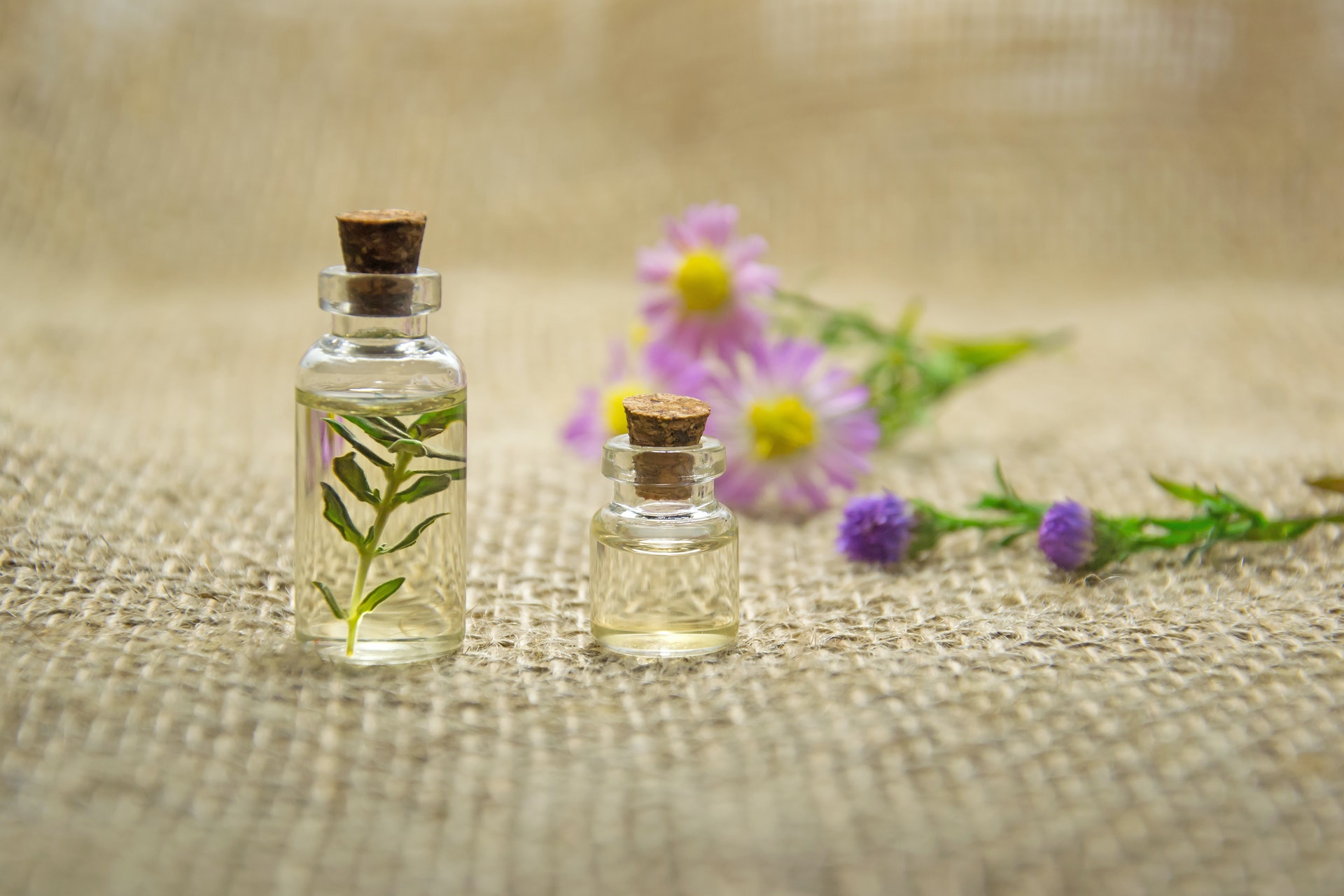Style • 06/03/2022
How to Use Essential Oil Vs. Fragrance Oil

Revivalist is a reader-supported endeavor and our posts may contain affiliate links. When you buy through links on our site, we may earn an affiliate commission.
Although they’re often sold side-by-side in stores, essential oils and fragrance oils are very different products. They are not meant to be used interchangeably. Both kinds of oil have fragrant properties, but essential oils contain many more compounds than natural fragrances.
Because they are so different in their make-up, essential oils and fragrance oils are best suited for different kinds of at-home use. Here’s everything you need to know about how to use these oils safely and effectively at home.
How These Oils Are Made
Essential oils are the result of streaming or cold-pressing natural plant materials such as leaves, stems, flowers, seeds, and bark. It can take many pounds of plant material to create one pound of essential oil, but because they are so strong, these oils are always diluted for use.
Dispelled essential oils contain scents and properties unique to each plant, and many people believe they have therapeutic and medicinal properties. For example, lavender essential oil is often used to reduce stress, and tea tree oil is used to fight infections and strengthen the immune system.
Fragrance oils, on the other hand, are scented products created in a lab. Natural fragrances are created out of isolates, or the scented molecules that naturally exist in plant material. Artisans can mix and match these isolates to create natural scents.
Artisans also use chemistry to create synthetic fragrance oils in a lab. This kind of fragrance oil can replicate smells found in everyday life, like the aroma of baked goods or the smell of fresh linen. Any scent not found in nature is built with synthetic fragrances.
Common Uses for Essential Oils
Many artisans like to use essential oils to scent candles, soap, and beauty products because they are all-natural and have a variety of benefits. However, because they are so high-quality, these oils can be expensive. They can also be challenging to work with because they have complicated chemical structures and evaporate easily under high temperatures.
However, essential oils are the only kind of oil you should use in your diffuser. Diffusers aren’t designed to handle heavier fragrance oils, which can clog your machine. In addition, while essential oils are generally safe for humans to breathe, some synthetic fragrance oils may not be. They also don’t have the therapeutic properties found in essential oils.
Although they are natural, essential oils are not safe for every kind of use. For instance, undiluted essential oils can irritate your skin upon application, and you should never eat them unless they’re prescribed by a certified medical professional. Some essential oils can be harmful during pregnancy, and others can seriously harm pets when diffused.
Common Uses for Fragrance Oils
Because many fragrance oils are designed for use in heated products, they can withstand higher temperatures and often cast a stronger scent during use. They’re cheaper than essential oils, and they can be extracted from a smaller amount of natural material so they’re generally better for the environment.
Fragrance oils work well for freshener sprays, candles, soap, perfume, and beauty products like lotion and face cream. They can be blended to create unique, high-quality scents. Some fragrance oils are not skin-safe, so it’s important to check specifications before using these oils for skin products.
There is some concern that synthetic fragrances may contain substances that are toxic for humans when inhaled or absorbed. For that reason, many artisans prefer to limit their range of scents to natural fragrances and avoid using synthetic oils in their products.
Regulations on Scented Oils
Both essential oils and fragrance oils are largely unregulated. Some companies like the International Fragrance Association (IFRA) have conducted research on how synthetic fragrance compounds can impact human health. Regulated or not, studies suggest that many people are sensitive to the effects of synthetic fragrances.
When essential oils are used as intended, they’re generally safe. However, some people are allergic to them, and not all essential oils are made with the same level of quality. For instance, oils extracted from plants that aren’t organic may be contaminated by pesticides.
Until the fragrance industry has more accountability, it’s up to consumers to choose fragrant oils wisely. Ingredients like “fragrance” or “parfum” could mean many different synthetic compounds, so it’s best to avoid any oils with those words. The best way to ensure you’re getting high-quality oils is to read the ingredients and buy from a reputable company.
Essential Oil vs. Fragrance Oil
Although essential oils and many fragrance oils are both derived from nature, they have many differences. Essential oils are much more complex and have additional therapeutic properties. Diffusers should only use essential oils, and natural fragrances are a cheap and eco-friendly alternative for home and beauty products.
Before you buy any fragrant oils, it’s important to consider how they could impact your health. Synthetic fragrance oils are generally considered less safe than natural options, although some natural oils can cause allergic reactions. Follow this guide to experiment with essential oil vs. fragrance oil safely and wisely at home.
Subscribe to Our Weekly Newsletter
We would love to connect deeper with you!


